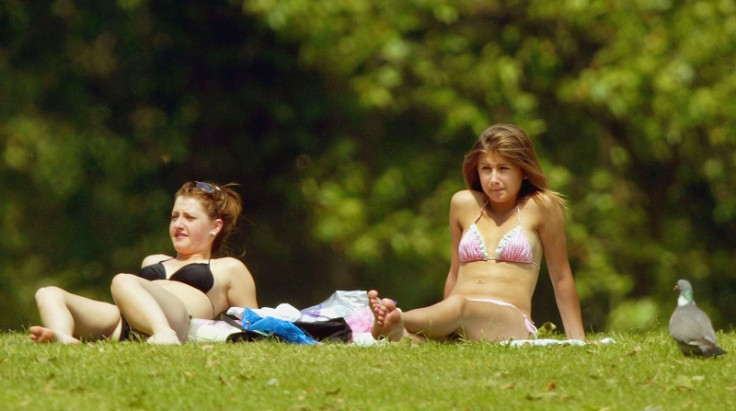UK weather: London expected to be hotter than Spain – plus top sun safety tips

Summer has come early this week for southern England as it basks in temperatures hotter than its European counterparts.
Londoners will experience a warmer climate than France or Spain tomorrow (14 April) with temperatures at 25C in central London – making it the hottest day so far this year.
Leon Brown, meteorologist at The Weather Channel UK, said: "We are expecting the Greater London area to reach 24C, with 25C in central London on Wednesday, and it will be warmer than southern Italy, Greece, Turkey and Cyprus where temperatures will be in the low twenties at best.
"In the Southern Hemisphere, Perth in Australia will be cooler than London on Wednesday at 21C, and coastal Sydney similar at 25C."
Temperatures outside London are expected to reach 23C in south-west England, Wales, the Midlands and East Anglia. However, parts of northern England and Scotland will be nearer to 10C to 12C.
The highest temperature for 15 April on record is 26.1C at Cambridge Botanical Gardens in 1934.
The weather is expected to change from Thursday as a cold front moves southwards dipping temperatures to around 18C and 16C on Friday.
Brown added: "This weekend high pressure will again dominate our weather with plenty of sunshine over the south and west. Chilly at dawn with ground frosts but in the sunshine temperatures reaching a very pleasant 16 to 17C."
The Weather Channel's top tips to stay safe in the sun
- Hay fever is not only a summer issue and can start as early as April. There are around 30 different types of pollen that cause hay fever, with some sufferers allergic to more than one type. The three main culprits are a) Tree pollen, peaking in spring, b) Grass pollen follows in late spring/early summer and c) Weed pollen, which is released any time from early spring to late autumn. About one in five people in the UK suffer from hay fever, with 95% of those allergic to grass pollen. It is twice as common in urban areas so if you find yourself struggling this year, take a trip to the seaside to enjoy a coastal sea breeze that is practically pollen free
- Alcohol dramatically increases the symptoms of hay fever with just two glasses of wine doubling the risk of allergic reactions – be careful at those summer garden parties if there is a high pollen count!
- As the sun comes out, our skin is at risk of damage even if overcast. UVA rays encourage skin ageing and wrinkles and of course skin cancer, therefore you should wear sun cream or an SPF moisturiser all year round. UVA rays are often thought to be safer than UVB but that's not the case, with UVA rays linked to mutations in skin cell DNA
- If you want a glowing summer tan, you need UVB rays. Unfortunately, these are very damaging to our skin. UVB rays vary in intensity and are strongest between 10am to 4pm from April to October, peaking in late June in the UK.
- Feeling unusually hot for this time of year? In recent weeks the sun has felt even stronger than normal due to an ozone anomaly affecting the UK. This means there are more damaging UV rays due to the lower ozone levels than usual. So sun worshippers beware!
© Copyright IBTimes 2025. All rights reserved.






















